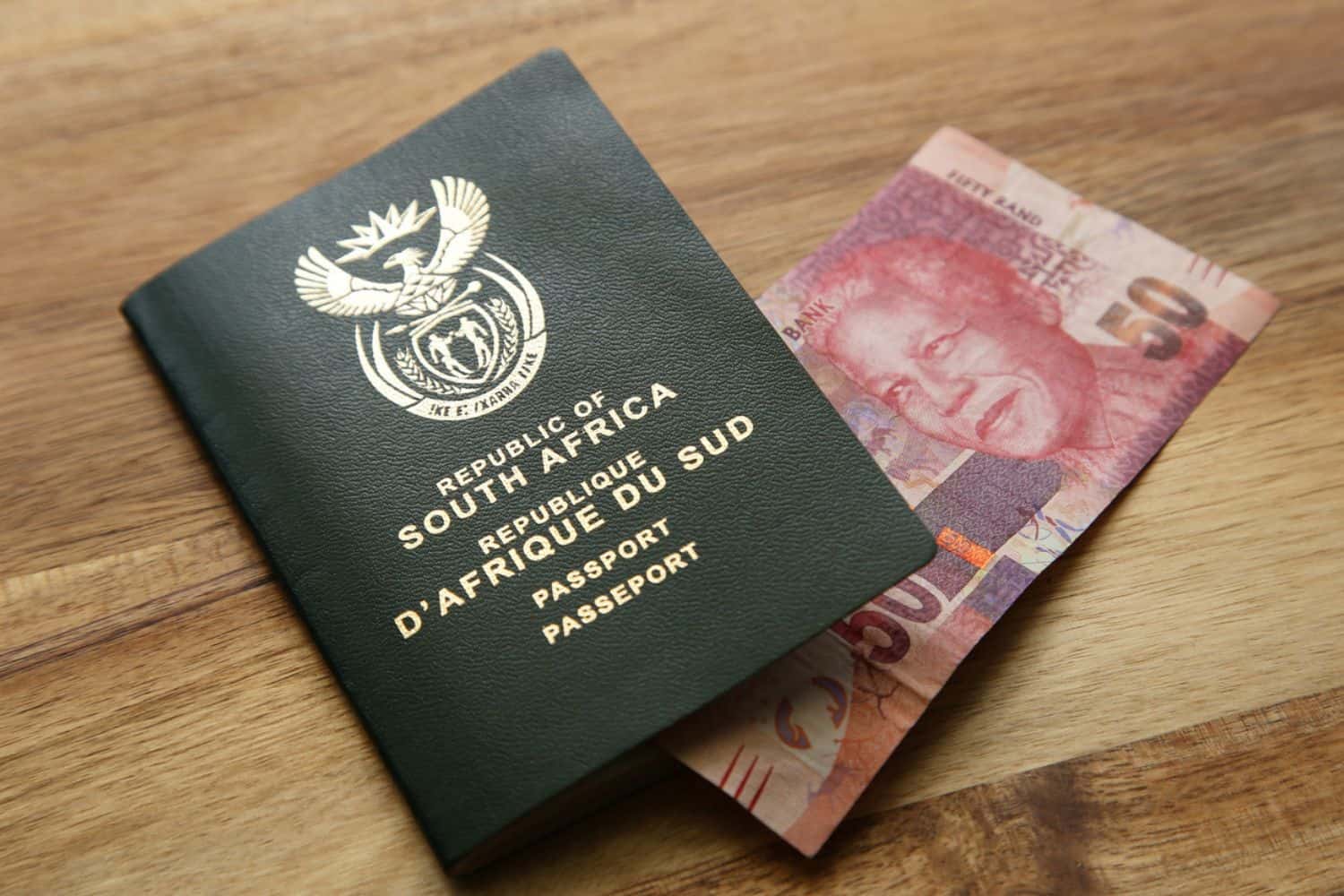MK party MP argued that Western nationals pay nothing for South African visits of up to 90 days.

Members of parliament (MPs) appear split over the visa requirements that Western nations continue to impose on South Africa.
The issue came under scrutiny during a National Assembly mini-plenary on Friday, where parliamentarians engaged in a subject debate on visas.
Visa requirements debated
Introducing the motion, MK party leader Dr Khanyisile Litchfield-Tshabalala described the discussion as a “clarion call,” insisting that any “self-respecting” nation should use its foreign policy to safeguard its citizens and national interests.
“It’s very clear that it comes to visa impositions by Western European countries, we have not been using our foreign policy to protect our people,” Litchfield-Tshabalala said.
She presented figures showing that a visa application costs the average South African R3 172 for the United States (US), R3 131 for the United Kingdom (UK), R1 817 for France, and R1 889 for Germany.
Litchfield-Tshabalala cited reports indicating that from January 2024 to May 2025, African applicants collectively lost 675 million US dollars in non-refunded visa fees.
“That means in two and a half years, that’s easily over a billion,” she said.
ALSO READ: Travel alert: Two less visa-free entries for SA passport holders
The MK party MP argued that Western nationals pay nothing for visits to South Africa of up to 90 days.
She stressed that additional expenses — such as courier charges, electronic travel authorisation, and immigration health surcharges — were not even included in the figures.
“Have Western Europeans not stolen enough from this continent?” she asked.
She continued: “Do they have the moral ground really to do this? From slavery to colonialisation, where’s our self-respect?”
Watch the debate below:
Litchfield-Tshabalala pointed out that several African nations, including Mali and Namibia, have introduced reciprocal requirements for Western visitors.
“This is supposed to be reciprocal,” she said, adding that the issue goes beyond cost.
“The process itself is so demeaning, it is so racist,” arguing that visa applications felt as onerous as citizenship requests, despite often being for brief visits.
READ MORE: New ‘selfie’ visa system coming in SA
Rejecting claims that reciprocal measures would deter investment, she argued that Western economies depend on African resources.
“We can stay with our raw materials. What will they produce?
“They need us more. Imposing visas on Europe will never stop them coming, Namibia is a direct example.”
‘Reciprocity is a tool’
Speaking on behalf of the ANC, MP Mogodu Moela said South Africans increasingly encounter “erroneous requirements” abroad, reflecting systemic inequality.
“There is a legitimate expectation for such imbalances to be raised with relevant states.
“However, reciprocity is a tool, not an ideology. It is not automatically invoked nor should it be deployed without careful assessment of impacts.”
Any push towards equal treatment must balance strategic interests, not rely on “symbolism or reactive politics”.
He cautioned that excessive restrictions could “restrict South Africa’s economic gates”.
Moela recalled how strict immigration regulations introduced in 2015 hurt the tourism sector, contributing to billions in losses and job cuts, according to the World Travel and Tourism Council (WTTC) and local industry bodies.
ALSO READ: Presidency won’t pick up fight after Pandor’s visa revoked
Although those rules were later revised, he called the episode a “cautionary example”.
He added that many nations had managed to secure better mobility agreements through diplomacy rather than reciprocal sanctions.
DA MP Nicole Bollman challenged the MK party’s stance, accusing it of using “selective truth” and “political amnesia”.
She argued that South Africa’s visa challenges stem from internal failures.
“Our passport did not lose its strength because foreign countries suddenly decided to target us; it lost strength because corruption hollowed out Home Affairs.
“Criminal syndicates infiltrated the national population register, and identity documents were sold,” she said.
‘Political performance’
Bollman stressed that if a state cannot ensure the credibility of its own documents, foreign governments will not recognise them as trustworthy.
With ongoing reforms to strengthen identity systems, she said reciprocity without institutional integrity amounted to a “political performance”.
“You cannot demand equal treatment while ignoring the failures that created unequal treatment.”
EFF MP Mazwikayise Blose argued that Western nations have clearly signalled hostility toward African visitors and those from the global south.
“It is not speculation, it is a reality,” he said.
Blose pointed to the UK’s refusal to grant EFF leader Julius Malema a visa, calling the justification “frivolous and political”.
Most recently, the US revoked the visa of former Cabinet minister Naledi Pandor.
NOW READ: Banned again: Malema’s presence not ‘conducive to the public good’, say UK authorities
Support Local Journalism
Add The Citizen as a Preferred Source on Google and follow us on Google News to see more of our trusted reporting in Google News and Top Stories.






